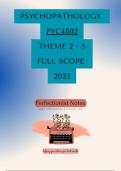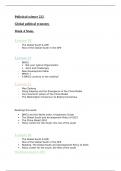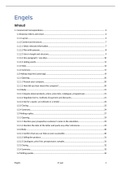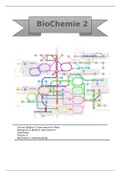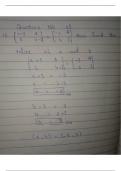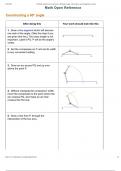Tentamen (uitwerkingen)
PYC4802 Exam Notes 2023
- Vak
- Instelling
Based on 2023 guidelines for Theme 2 -5, the 2023 journal articles and textbooks, and contains links to download all resources. Focus points for each theme discussed in-depth, with example essay answers for past exams and comparisons of past papers. I got 80% using these notes and have improved the...
[Meer zien]
